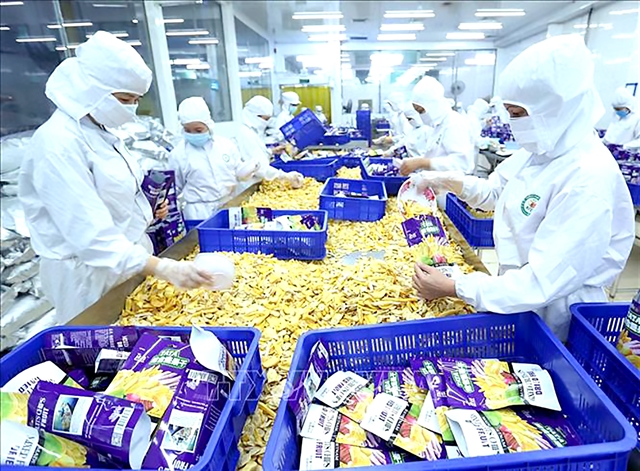 Economy
Economy

 |
Fruit processing plants are operating at 60 per cent capacity due to lack of raw materials whereas farmers cannot find buyers for their fruits. VNA/VNS Photo
HCM CITY – Fruit processors in the country are unable to source raw materials but, paradoxically, fruits farmers are unable to find buyers for their produce.
Ngô Quang Tú of the Ministry of Agriculture and Rural Development’s Agro Processing and Market Development Authority, explained this by saying fruit quality does not match processors’ needs but that there is also a lack of linkages between them and smallholder farmers.
Việt Nam has 157 processing plants with a total output of nearly 1.1 million tonnes of fruit products a year.
But they usually operate at around 60 per cent of capacity because of a shortage of raw materials due to a number of reasons, Tú said.
The lack of post-harvest storage technologies means a substantial portion of the output is lost to spoilage.
With most processing facilities being small, Phạm Anh Tuấn, director of the Việt Nam Institute of Agricultural Engineering and Post-Harvest Technology, also stressed the need for developing technologies suitable for small- and medium-sized processors.
Products they can make efficiently include dried, frozen and canned vegetables and fruits, he said.
Đoàn Ngọc Có, deputy director of the Gia Lai Department of Agriculture and Rural Development, said his province has 35,000ha under fruits, but selling to processing factories for exports remains insignificant.
The use of technology for preliminary processing too remains low.
Thus, the fruits are mainly consumed domestically with a small portion being exported to China, he said.
The province is focusing on expanding the area under banana and passion fruit that are grown to GlobalGAP standards, he said. They will increase to 20,000ha and 9,000ha, respectively by 2025, taking the total area of fruits meeting GlobalGAP standards from 21,500ha now to 55,000ha, he added.
It plans to make passion fruit, banana, avocado, and durian its main agriculture exports, he said. Banana has proved particularly lucrative with profits of VNĐ350-400 million (US$15,200-17,400) per hectare, helping farmers stabilise their lives, he said.
In the future, the province plans to develop a process to promote organic farming and economical irrigation to grow fruit trees in a sustainable way, he added.
Links between producers and distributors are key to boosting consumption of organic produce, experts have said.
They have stressed the need for the Government and localities to organise workshops to teach farmers how to grow high-quality products. – VNS